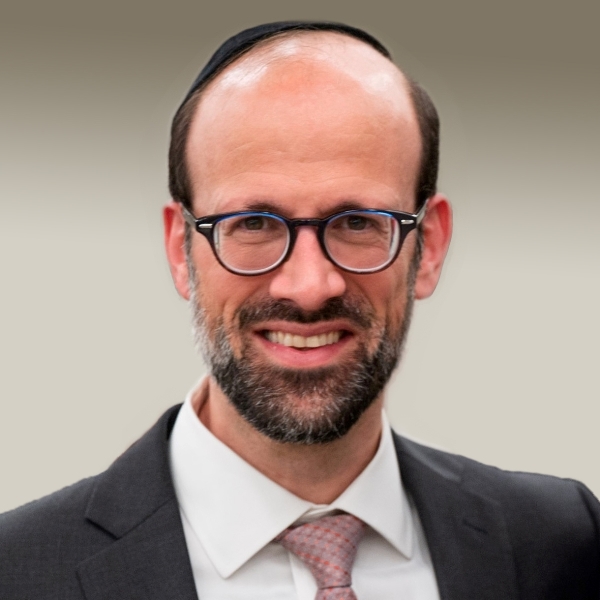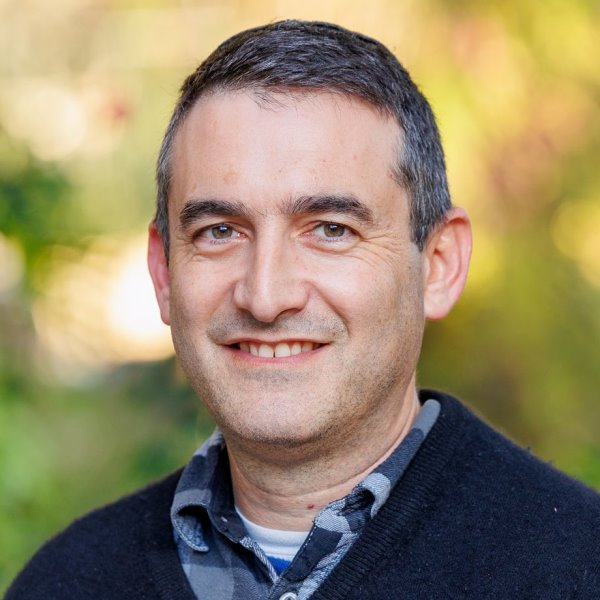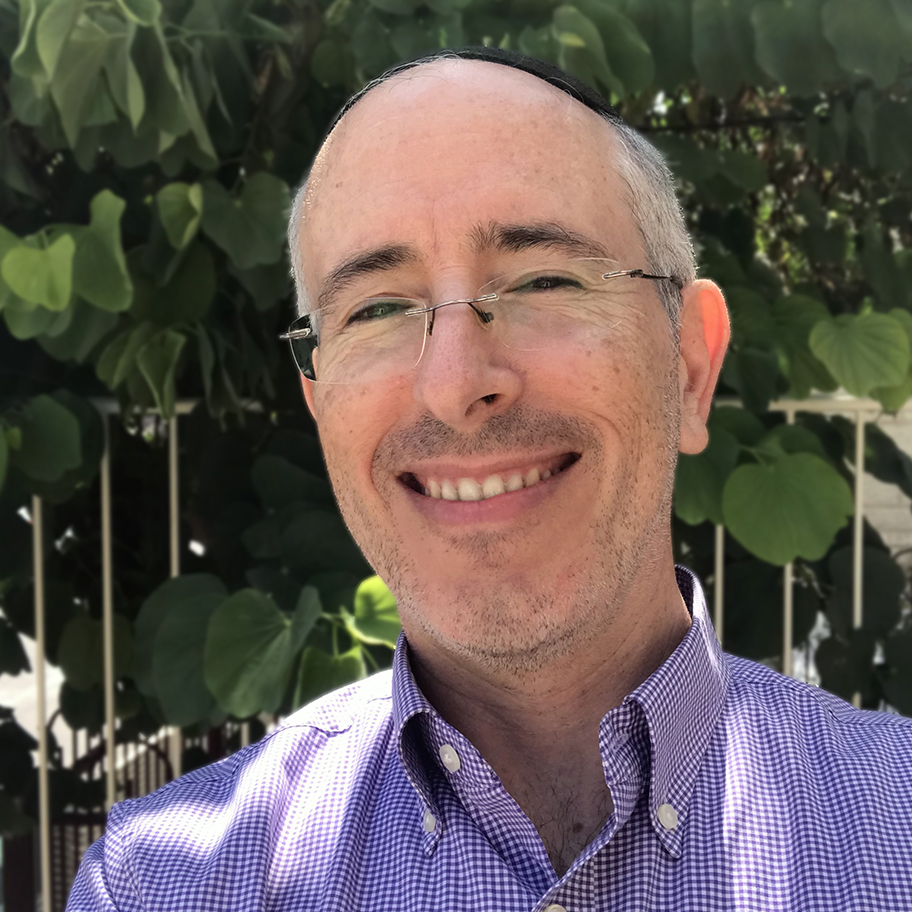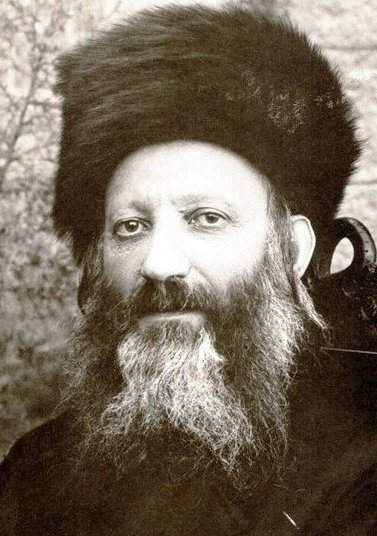“TheTorah.com is pioneering in using the new scholarship to illuminate Torah for the laypeople and to create a forum for respectful exploration of a post-modern affirmation and deeper understanding of Torah min HaShamayim.”
— Rabbi Dr. Irving (Yitz) Greenberg
“We are thrilled by TheTorah.com and its academic and scholarly offerings. I am particularly grateful for it in my Torah study preparation. I am grateful for the robust diversity of scholars and scholarship from various perspectives. Liberal to traditional, male/female, geographic, experienced and novice are all gathered in one location. When does that happen in the Jewish community?”
— Rabbi Elaine Zecher, Temple Israel of Boston
“Thank you for providing such varied, thought-provoking, well-researched, and inspiring articles!”
— Dr. Ellen Warner, M.D., M.Sc., Sunnybrook Hospital, Toronto
“I enjoy reading TheTorah.com and support the work of the Academic Torah Institute. This site exists to maintain respect for tradition while simultaneously encouraging inquiry and an open-minded approach.”
— Dr. Rabbi Jeremy Rosen, Persian Jewish Community of Manhattan
“TheTorah.com is excellent and continues to produce the best kind of scholarship the world needs. This is a superb resource!”
— Prof. Rabbi Tamara Cohn Eskenazi, Hebrew Union College
“We are Halachic Jews and in spite of the warnings against the documentary hypothesis, understanding J, E, P, D and the redactors along with learning more about ancient Near Eastern religions and cultures through your work has actually enhanced our appreciation of the Torah ... My wife and I continue to enjoy and benefit from TheTorah.com. And we’ve made your articles a mainstay of our weekly studies.”
— Neil Elkins, Nahariya, Israel (formerly of Denver, CO)
“I am more than a regular reader – I use your materials to teach and preach almost every week. In fact, I prefer your site over traditional texts because of the position it takes on the origins of Scripture. I have declared your website to be a game changer for the future of religion. I refer my congregants to it often, quote from it, and reference your authors regularly.”
— Rabbi Ron Stern, Stephen Wise Temple, Los Angeles, CA
“The essays on TheTorah.com deepen my understanding of the biblical text and enrich my appreciation of its complexity and its depth. I use scholarship on TheTorah.com for classes, Torah study sessions, sermons, and my own personal learning.”
— Rabbi Daniel Kirzane, Oak Park Temple, Oak Park, IL
“I want to thank you for TheTorah.com. It is a wonderful resource. As a retired Jewish educator who continues to facilitate adult learners studying parshat hashavua you ensure that a group which has studied together more than 13 years still has new and exciting avenues to journey down.”
— Betty Ann Ross, Board of Jewish Education, NYC (retired)
“I have been reading TheTorah.com for several years now. It is the only site that I allow my graduate students (online and in class) to use for their papers and forum discussions besides of course the University’s online peer-reviewed journal subscriptions.”
— Prof. David Hymes, Associate Professor of Old Testament, Northwest University, Kirkland, WA
“I’ve been reading TheTorah.com for several years. I have the link to the website on my syllabus and assign specific essays for students to read and invite them to explore the archives when they are writing on a biblical text. I love hearing the distinctive voices of your authors and the material is scholarly while still being accessible to the average reader.
Our students are studying for the MDiv degree and most of them are second career students, so reading from the journals of the biblical studies guild is difficult for many of them. TheTorah.com provides the same quality of a journal but does not assume the insider language typical when writing for a guild of scholars.
Keep up the good work! I plan to continue to financially support TheTorah.com because it is so very valuable to all of us who are interested in biblical studies.”
— Prof. Steve Bishop, Associate Professor of Old Testament, Seminary of the Southwest, Austin TX
“It’s a tremendous resource for those of us looking for a respectful and accessible yet scholarly treatment of these topics.”
— Dr. Jordan Wosnick, Toronto, Canada
“I look forward with great anticipation to each new issue of TheTorah.com, not only for the substance of the articles but also for the illustrations which accompany them. These are something special: inevitably interesting and often extraordinarily beautiful. So it’s always a pleasure to see the words ‘The Torah.com’ in my inbox. I know that I am in for a double treat. Biz hundert und tswanzig!”
— Lord Gordon Wasserman, House of Lords, London SW1, UK
“When I’m looking for something fresh and scholarly, I turn to TheTorah.com.”
— Rabbi Neil Schuman, Manetto Jewish Center, Plainview, NY
“TheTorah.com and TheGemara.com are some of my favorite online resources for deep and accessible scholarship. Whenever I'm preparing for a class or a d’var torah, these websites are among the places I read regularly to find new ideas and topics to explore. They always give me something to reflect on for myself, as well as new perspectives to share with my congregation. Thank you for bringing these important perspectives to our communities!”
— Rabbi Howard Tilman, Congregation Beth Israel, Scotch Plains, NJ
“COVID-19 has forced me to avoid the synagogue and pray at home. This unfortunate state of affairs has had one benefit: on Shabbat morning I chant the Torah portion and the Haftarah at my own pace, taking the time to check the traditional and modern commentators whenever I spot a thorny problem. I look forward especially to the TheTorah.com selections for the week, which I print out each Friday, because they so often give me a new slant, an unconventional angle, for understanding our Torah. I long to return to shul, but when I do, The Torah.com will be in my tallit bag.”
— Dr. Rabbi Larry Grossman, Director of Publications, American Jewish Committee
“I enjoy the wide array of viewpoints in these articles, not to mention the fine scholarship. One of the most interesting aspects is how academic some articles written by Orthodox rabbis can be—it has shattered the stereotype for me! The wide variety of backgrounds of the writers, and the points of view and fascinating new insights, are all big pluses.”
— Dr. Helen Leneman, Independent Scholar and Cantor, Bethesda, MD
“I started reading articles from TheTorah.com about a year ago as part of a once a month bible study group in my area. I love so many of the articles I read—I am really intrigued to learn about Judaism’s early days, and the influence of the cultural milieu upon it. As a person not fluent in Hebrew, but working at it, I also appreciate the Hebrew texts in the articles along with their translations. Your website truly does make the Tanach come alive and I am very appreciative of it.”
— Sharon Bloomgarden, Mequon, Wisconsin
“I discovered TheTorah.com about two years ago, and I use it regularly when I prepare shiurim for a study group or just feel like diving into a topic. The articles are the perfect level for my needs and interests—detailed and critical enough to lead one into the topic, with enough references for followup when wanting to go the next step, but not overly academic. Thanks for the great work.”
— Sue Reiss, Shorashim, Israel
“I have been a subscriber since you first started the page. I have led an adult Torah study class for our Federation for over 25 years... I never get tired of the Torah! And I love your graphics. Thank you for this ambitious, inclusive, accessible Torah study.”
— Helena Harpman, Oklahoma City, OK
“With an academic background of linguistics and English literature, I have found TheTorah.com, and my occasional forays into TheGemara.com, intellectually rigorous and spiritually fulfilling.
It has fueled my delight with Torah, inspired my cheder teaching and opened up my engagement with Judaism and its sacred texts. Thank you for such an approachable and vital contribution to contemporary Jewish thought.”
— Joan Romick, Australia
“I first heard about TheTorah.com from a presentation led by a professor at HUC-JIR in Jerusalem a few months ago. I have been leading a Torah study group at my congregation for well over twenty years. The members like to look at Torah through the lens of scholarship.
Now I regularly look to your website for insights to bring to the Torah study group and to satiate my own love of learning. Thank you for doing such great work.”
— Rabbi Jennifer Jaech, Temple Israel of Northern Westchester
“Over the years, I wandered in a wilderness of my own making, angry at the Church, but not angry at God. After my mother’s death, I returned to the church, joined a connect group (what we used to call a Sunday School class) and took up Bible Study again. At some point, my connect group asked if I would like to lead a lesson. TheTorah.com is always a source for me for information on Old Testament writings. As is my copy of Torah and my copy of Robert Alter’s The Hebrew Bible.
Research on TheTorah.com has enriched my understanding of so much of Torah and the Writings and perhaps ironically, my understanding of the New Testament.”
— Jaki Jean Ettinger, El Paso, TX
“I have been a reader for several years and the articles, which I quite often follow-up by reading books by their authors, have helped me connect more positively with my Judaism than at any time since my bar mitzvah (which was in 1945!).”
— Dr. David Abrahamson, London, U.K.
TheTorah.com’s mission is to make academic biblical scholarship accessible and engaging to readers from all backgrounds.
We solicit original essays on the Torah portion and holidays from academic scholars whose expertise includes history, archaeology, ancient Near Eastern studies, Egyptology, Semitic languages, textual criticism, and literary approaches.
These essays are reviewed and edited by our in-house scholars, to ensure the highest academic standards as well as maximum readability for the general audience. Thus far, TheTorah.com has published over 500 scholars and is the world’s leading educational platform for Torah study informed by contemporary scholarship.
_______________
TheTorah.com is the flagship website of the Academic Torah Institute, a nonprofit 501(c)3 educational enterprise founded in 2012 (under the name Project Torah and Biblical Scholarship) to provide accessible academic scholarship of Judaism’s sacred texts. The Institute also publishes TheTorah.co.il and TheGemara.com.
We believe that academic scholarship both enriches and deepens our engagement with Jewish texts, and that it fosters a more open and moderate society. Read contemporary perspectives on the benefits of studying Torah with modern biblical scholarship.
Website development by Bagel Studio.
We are indebted to our supporters, who believe in the vision of the Academic Torah Institute and TheTorah.com, and whose generous backing enables us to continue our work.
______________
Hartley Koschitzky
The children of Belda & Marcel Lindenbaum
A Friend - “הזרעים בדמעה ברנה יקצרו”
+ Anonymous donors
______________
Geri Gindea
Yaacov and Ronit Gross
Phyllis Hammer
Phillip Kahn
David Tropper
Mitch W.
Rabbi Elaine Zecher and Temple Israel of Boston
+ Anonymous donors
______________
Prof. Sasha Englard
Rabbi Edwin and Laurie Farber
William Friedlieb
Boris Myschkowski
Dr. Ari Robicsek
David and Sara Tesler
+ Anonymous donors
Please use the following links to download our updated submission guidelines and citation style guide.
Note: Due to time constraints and limited staff, we are not accepting unsolicited essays at this time.
 David D. Steinberg is the director of the Academic Torah Institute - TheTorah.com since its inception in December 2012. Born in Bnei Brak, Israel, David spent his teen years in Manchester, England. He learned in Manchester Yeshiva under the tutelage of Rav Yehuda Zev Segal zt"l followed by Gateshead Yeshiva in Newcastle, England. He then returned to Israel and learned in Mir Yeshiva, Jerusalem. David learned in Kollel for several years while concurrently taking the Ner Le’Elef Rabbinical Outreach training course. In 2002 he moved to Huntington, NY to work as an outreach rabbi for the Mesorah Center. In 2007 he joined Aish Hatorah NY as a Programs Director. His responsibilities included managing their Yeshiva in Passaic, NJ and serving as a Rabbi in their Executive Learning program. He later left his rabbinic post to create TheTorah.com.
David D. Steinberg is the director of the Academic Torah Institute - TheTorah.com since its inception in December 2012. Born in Bnei Brak, Israel, David spent his teen years in Manchester, England. He learned in Manchester Yeshiva under the tutelage of Rav Yehuda Zev Segal zt"l followed by Gateshead Yeshiva in Newcastle, England. He then returned to Israel and learned in Mir Yeshiva, Jerusalem. David learned in Kollel for several years while concurrently taking the Ner Le’Elef Rabbinical Outreach training course. In 2002 he moved to Huntington, NY to work as an outreach rabbi for the Mesorah Center. In 2007 he joined Aish Hatorah NY as a Programs Director. His responsibilities included managing their Yeshiva in Passaic, NJ and serving as a Rabbi in their Executive Learning program. He later left his rabbinic post to create TheTorah.com.
 Marc Zvi Brettler is Bernice & Morton Lerner Professor of Judaic Studies at Duke University, and Dora Golding Professor of Biblical Studies (Emeritus) at Brandeis University. After graduating from the Yeshiva of Flatbush in New York, he studied at Brandeis University under Professor Nahum Sarna and at the Hebrew University in Jerusalem. In addition to his academic writings on biblical historical texts, biblical metaphors and other topics, he is committed to making academic biblical scholarship accessible to a broader public, as seen in his How to Read the Jewish Bible, and The Jewish Study Bible, co-edited with Adele Berlin. He recently co-authored The Bible and the Believer: How to Read the Bible Critically and Religiously, which suggests that academic biblical study and Jewish observance are fully compatible. A member of the American Academy of Jewish Research, he is currently engaged in writing a section of a commentary on the book of Psalms for the Jewish Publication Society.
Marc Zvi Brettler is Bernice & Morton Lerner Professor of Judaic Studies at Duke University, and Dora Golding Professor of Biblical Studies (Emeritus) at Brandeis University. After graduating from the Yeshiva of Flatbush in New York, he studied at Brandeis University under Professor Nahum Sarna and at the Hebrew University in Jerusalem. In addition to his academic writings on biblical historical texts, biblical metaphors and other topics, he is committed to making academic biblical scholarship accessible to a broader public, as seen in his How to Read the Jewish Bible, and The Jewish Study Bible, co-edited with Adele Berlin. He recently co-authored The Bible and the Believer: How to Read the Bible Critically and Religiously, which suggests that academic biblical study and Jewish observance are fully compatible. A member of the American Academy of Jewish Research, he is currently engaged in writing a section of a commentary on the book of Psalms for the Jewish Publication Society.
 Zev Farber holds a Ph.D. from Emory University in Jewish Religious Cultures (Hebrew Bible focus), an M.A. from Hebrew University in Jewish History (biblical period) and a B.A. in psychology from Touro College. He also holds ordination (yoreh yoreh) and advanced ordination (yadin yadin) from Yeshivat Chovevei Torah (YCT) Rabbinical School. He is the editor of Halakhic Realites: Collected Essays on Brain Death (Maggid Press) and the author of Images of Joshua in the Bible and Their Reception (De Gruyter, BZAW 457).
Zev Farber holds a Ph.D. from Emory University in Jewish Religious Cultures (Hebrew Bible focus), an M.A. from Hebrew University in Jewish History (biblical period) and a B.A. in psychology from Touro College. He also holds ordination (yoreh yoreh) and advanced ordination (yadin yadin) from Yeshivat Chovevei Torah (YCT) Rabbinical School. He is the editor of Halakhic Realites: Collected Essays on Brain Death (Maggid Press) and the author of Images of Joshua in the Bible and Their Reception (De Gruyter, BZAW 457).
Tina M. Sherman holds a Ph.D. in Near Eastern and Judaic Studies from Brandeis University. She is currently lecturing in Bible at the University of Minnesota and finalizing the manuscript for her first book, which explores how the prophetic authors used plant metaphors to construct national identities for Israel and Judah. She is also the author of the “Biblical Metaphor Annotated Bibliography” (2014) and co-author, with Bernard M. Levinson, of “Law and Legal Literature” in The Wiley Blackwell Companion to Ancient Israel (2016).
 David Bar-Cohn holds an M.A. in Bible (magna cum laude) from Bar-Ilan University; his thesis is titled, Rites of Replenishment: Observations on Priestly Purification (Bar-Ilan, 2022). He is the author of the book Ohr HaShachar: Torah, Kabbalah and Consciousness in the Daily Morning Blessings (Urim, 2014), an analysis of the birkhot hashachar prayers. He also holds an M.A. in Clinical Psychology and received semikha in Yoreh De’ah. David grew up in Los Angeles and now lives in Beit Shemesh, Israel.
David Bar-Cohn holds an M.A. in Bible (magna cum laude) from Bar-Ilan University; his thesis is titled, Rites of Replenishment: Observations on Priestly Purification (Bar-Ilan, 2022). He is the author of the book Ohr HaShachar: Torah, Kabbalah and Consciousness in the Daily Morning Blessings (Urim, 2014), an analysis of the birkhot hashachar prayers. He also holds an M.A. in Clinical Psychology and received semikha in Yoreh De’ah. David grew up in Los Angeles and now lives in Beit Shemesh, Israel.
 Eve Levavi Feinstein holds a Ph.D. in Hebrew Bible from Harvard University and currently lives in Palo Alto, CA, with her husband, Efraim, and their two children. Eve grew up in New York City, where she attended Ramaz. She later went to Brandeis University, where she majored in Near Eastern and Judaic Studies with a concentration in the Bible and the ancient Near East. Her first book, Sexual Pollution in the Hebrew Bible (Oxford University Press, 2014), explores the Bible’s use of purity and contamination language to describe sexual relationships. She has also written articles for Jewish Ideas Daily and Vetus Testamentum.
Eve Levavi Feinstein holds a Ph.D. in Hebrew Bible from Harvard University and currently lives in Palo Alto, CA, with her husband, Efraim, and their two children. Eve grew up in New York City, where she attended Ramaz. She later went to Brandeis University, where she majored in Near Eastern and Judaic Studies with a concentration in the Bible and the ancient Near East. Her first book, Sexual Pollution in the Hebrew Bible (Oxford University Press, 2014), explores the Bible’s use of purity and contamination language to describe sexual relationships. She has also written articles for Jewish Ideas Daily and Vetus Testamentum.
“Torah min hashmayim" —Torah is from heaven (Sanhedrin 10:1).
Torah “lo bashamayim hi”— The Torah is not in heaven (Bava Metzia 59b).
“Eilu v’eilu divrei elokim chaim”—These and those are the words of the Living God (Eruvin 13b).

“The greatest deficiency in yir’at shamayim (fear of heaven) that is not well connected to the light of Torah is that fear of thought replaces fear of sin. Because a human being begins to be afraid of thinking, he drowns in the morass of ignorance, which robs him of the light of the soul, weakens his vigor, and casts a pall over his spirit.” (Orot ha-Qodesh, vol. 3, pg. 26)